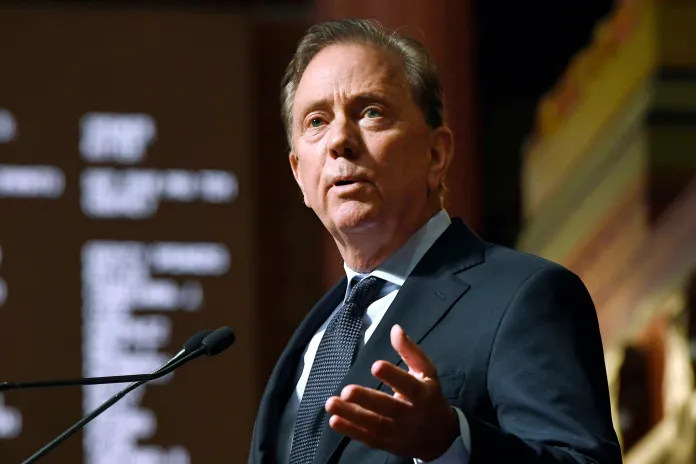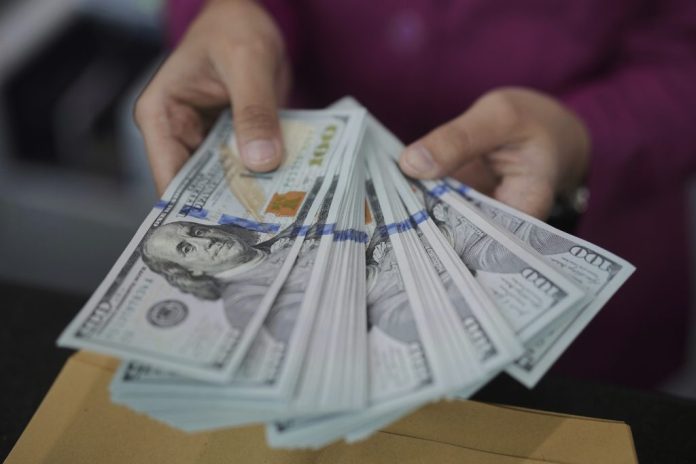Biden’s Budget Breakdown: How The Big Government Binge Overtaxes, Overspends, And Overborrows
More than a month later than the statutory deadline, President Biden finally released his Budget on Thursday. A five-word warning should have been included with the document. “Hold on to your wallet.”
The budget contains thousands of pages of technical details and arcana. All of these details will be made more clear in the coming days. A preliminary overview of the main budget components is available here. Tables summaries illustrates a familiar pattern among Democrats — a tax, spend, and borrow vision designed to expand government further. Here are some examples. “highlights” The summary document has more lowlights than it does highlights.
Too Many Taxes
The administration overall was positive. Says Budget proposal: $4.7 trillion Increased tax — a staggering sum in any season, but particularly when the economy faces recession risks. One of the most prominent revenue increases:
- $437 billion “a minimum income tax on the wealthiest taxpayers”
- $493 billion in changes to the “global minimum tax regime”
- $238 billion for increasing the tax on stock purchasebacks
- $306 billion from applying Medicare taxes to pass-through income — a “loophole” That President Biden himself The past six years were spent exploiting
- $344 billion for increasing the rate of Medicare tax, from 3.8 percent up to 5 percent for people earning more than $400,000
- $1.3 Trillion from raising the corporate tax rate to 21 percent from 28 percent
- $200 billion in other “reforms” Taxation for businesses
- $549 billion in savings by adopting the international tax rule on undertaxed profits
- $66 billion “reform[ing] taxation of foreign fossil fuel income”
- $37 billion “modify[ing] energy taxes”
- $235 billion for increasing the top marginal tax rate for high-income earners
- $214 billion due to higher capital gains tax
- $23 billion in higher taxes on retirement plans “high-income taxpayers”
- $77 billion in changes to estate- and gift taxes
- $50 billion “clos[ing] loopholes”
- Revenue of $105 billion is expected to be generated by the extension of IRS enforcement funds, which were included in last year’s Inflation Reduction Act. Proposal to expand and extend the IRS’s ability to Audit and harass taxpayers It comes shortly after an Analyst at the Tax Policy Center admitted This Service is available to you President Biden has been released from the hook For failing to pay his taxes.
Whatever anyone thinks about the merits of these individual proposals, they cumulatively would have a significant — and negative — impact on the economy. In a time of high inflation, taxing energy producers would result in less exploration and higher pump prices.
These tax increases are ironic because Biden didn’t approve them. “pay his fair share” Medicare taxes according to Numerous tax experts. Shalanda, Office of Management and Budget Director, participated in a budget preview conference with reporters on Thursday. Refused to recognize Biden’s hypocrisy — but the American people will.
Spend Too Much
Where will all of the new tax revenue from the budget go? It will likely lead to more spending and an increase in welfare state. There are many proposals that Biden failed to make. Agenda to Build Back Bankruptcy:
- $424 billion in child care
- $200 billion “free, universal preschool”
- $236 billion to extend Obamacare’s insurance coverage permanently Subventions for the wealthy
- $200 billion for a state-run health program in those states that have not expanded Medicaid coverage to the able-bodied as part of Obamacare
- Pell Grant to Doubled at $96 Billion
- $90 billion “free community college”
- Housing subsidies: $104 billion
- $150 billion for Medicaid community and home services
- For $325 billion “national, comprehensive paid family and medical leave”
- $429 billion for an expanded Child Tax Credit According to Treasury, however, revenue explanationsThe higher credit rate would be applicable for 2024 or 2025 Only. In December 2021 the Congressional Budget Office Estimate The cost for a 10-year extension of this policy would be $1.6 trillion. That’s almost four times the amount in the budget.
- $156 billion for an enhanced Earned income Tax Credit
- $76 billion to support behavioral health care
- $1 billion “make permanent the income exclusion for forgiven student debt.” Although it may seem like a small number, this would allow for another administration to pass. massive giveaway In student “loan forgiveness,” The amount of debt that is canceled does not trigger federal income taxes
Beyond the details of specific proposals, budget neglects the obvious fact that subventionizing programs are essential. Major increases They increase their costs rather than decreasing them. These proposals will encourage colleges and child care providers, as well as insurance companies, to increase their rates knowing that the federal government would pay the difference. The budget’s spending will cause inflation to rise, while its tax increases will reduce economic growth.
Borrow Too Much
Even with all the tax hikes Biden has proposed it will not be enough to offset the new spending and the cost of servicing Washington’s Covid debt binge over the past several years. The budget also shows how the debt situation has gotten worse since this president took office.
- Table S-2 states that the budget, if fully adopted, would reduce 10-year deficits of $2.857 trillion. The Congressional Budget Office issued its final budget last month. Analyse The 10-year budget showed that the deficit for the next 10 years has increased by $3.082 billion since May. This means that even if all of the Biden responsibilities were fulfilled, there would still be a deficit in the 10-year budget. “deficit reduction” If it is passed, the nation will be $200 billion less in fiscal health than it was 10 months ago.
- According to the budget proposal, there would be deficits of at most $1.5 trillion every year for the 10-year budget window. By the last year of the budget window, they would total $2 trillion — and rising.
- If President Biden is elected in 2029, interest on the debt will be more than $1 trillion annually by the time he leaves office. To pay our debt interest, we will need to spend more than 10% of the federal budget.
- Deficits will remain near or above 5 percent of GDP for the foreseeable future — much faster than our economy can grow, meaning that debt will continue to rise and rise as far as the eye can see.
This budget is not realistic. We hope lawmakers can restore some sense to a Washington spending spree that has spiraled completely out of control.
Chris Jacobs is the founder and CEO at Juniper Research Group. He is also the author of “The book that changed everything”.The Case Against Single Payer.” He can be found on Twitter: @chrisjacobsHC.
“From Biden’s Budget breakdown: How Big Government Indulge in Overtaxes, Underspends, and Overborrows”
“The views and opinions expressed here are solely those of the author of the article and not necessarily shared or endorsed by Conservative News Daily”
" Conservative News Daily does not always share or support the views and opinions expressed here; they are just those of the writer."




